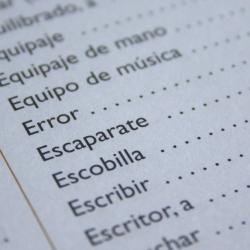How to Learn Pronunciation: Tips for Sounding Like a Native
Mastering the pronunciation of a new language can often be the most challenging aspect of language learning. While grammar, vocabulary, and conversational skills are crucial, sounding like a native speaker can significantly boost your confidence and improve your communication. Whether you're learning English, Spanish, Mandarin, or any other language, this article provides you with effective strategies to refine your pronunciation skills and bring you closer to sounding like a native speaker.
1. Listen Actively
Before you speak, focus on listening. Active listening involves paying attention not just to words, but also to the rhythm, intonation, and stress patterns of the language. Immersing yourself in media such as podcasts, music, movies, and audiobooks helps train your ear. Try to mimic native speakers and repeat phrases to grasp the natural flow of the language.
2. Use Phonetic Tools
Familiarize yourself with the International Phonetic Alphabet (IPA), which provides a standardized representation of sounds. Many language learners find IPA charts very helpful as they break down phonetic differences in detail. Additionally, many online resources offer pronunciation guides, including YouTube channels and language learning apps, where you can see and hear the precise pronunciation of words.
3. Practice Tongue Twisters
Tongue twisters are a fun and effective way to improve your pronunciation by challenging your mouth and brain to work in harmony. They help you focus on difficult sounds and improve your articulation. Start with simple ones and gradually progress to more complex phrases.
4. Record Yourself
Recording your speech and playing it back is a powerful method to identify areas where your pronunciation differs from that of a native speaker. It allows you to critically evaluate your progress and make necessary adjustments. Compare your recordings with native speakers to identify subtle differences.
5. Focus on Problematic Sounds
Every language has certain sounds that may not exist in your native tongue, making them more challenging to master. Identify these sounds and pay special attention to practicing them. For instance, English learners might struggle with the "th" sound, while Spanish learners might find the rolled "r" challenging. Practice these sounds in isolation, then in words and sentences.
6. Utilize Language Exchange
Engage in language exchanges with native speakers who are interested in learning your language. This mutual learning experience can be incredibly beneficial. It provides you with real-world practice and direct feedback on your pronunciation in a supportive environment.
7. Embrace the Music of Language
Languages often have a musical quality, with varying pitches and rhythms. Pay attention to the intonation patterns and stress in sentences. Try to think of the language as a song, where each sentence has its own melody. Mimicking native speakers’ intonation can significantly enhance your ability to sound more natural.
8. Get Professional Feedback
Consider hiring a language coach or tutor specializing in pronunciation. They can offer personalized feedback, guide you through targeted exercises, and help you develop a tailored practice routine. Even a few sessions can offer invaluable insights.
9. Patience and Perseverance
Improving pronunciation is a gradual process that requires patience and persistence. Make it a daily practice, even if it's just for a few minutes. Celebrate small milestones to keep yourself motivated.
10. Stay Open to Correction
Mistakes are a natural part of learning. Staying open to correction and viewing feedback as an opportunity for growth is crucial. Don’t take criticism personally, and remain eager to learn and improve.
Conclusion
Achieving native-like pronunciation in a language requires consistent practice, keen attention, and a willingness to step out of your comfort zone. By incorporating these strategies into your language learning routine, you will make substantial strides in improving your pronunciation. Remember, every effort you make brings you closer to fluency and the ability to communicate effectively with native speakers. Keep practicing, and enjoy the journey of mastering a new language!






















